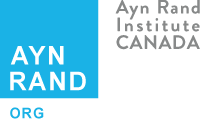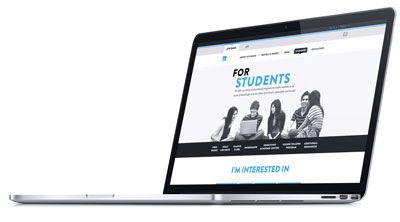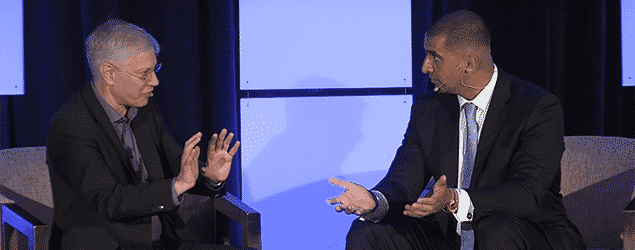
- Essay Contests
- Teacher Resources
- The Fountainhead

The Fountainhead Essay Contest
For all students in grades 8 through 12, ages 13+, next entry deadline: september 13, 2024, cash prizes.
Annual Grand Prize
Essay Topic
Steven Mallory tells Roark that he fears there is something like a “drooling beast of prey” that is hanging over the world. What do we learn from the rest of the book about what is the object of Mallory’s fear and in what way is it like a beast of prey? How does Roark help Mallory and others learn to overcome it? How does Roark’s success in helping his friends combat this fear relate to the theme of the novel? To answer all of these questions, give specific examples from the novel.
Essays will be judged on whether the student is able to argue for and justify their view—not on whether the Institute agrees with the view the student expresses. Judges will look for writing that is clear, articulate and logically organized. Winning essays must demonstrate an outstanding grasp of the philosophic meaning of The Fountainhead.
Essay submissions are evaluated in a fair and unbiased four-round judging process. Judges are individually selected by the Ayn Rand Institute based on a demonstrated knowledge and understanding of Ayn Rand’s works.
To ensure the anonymity of our participants, winners’ names are unknown to judges until after essays have been ranked and the contest results finalized.
- The Ayn Rand Institute’s (ARI’s) The Fountainhead essay contest is open to all students worldwide, except where void or prohibited by law.
- Entrants must be at least 13 years of age and be enrolled as an 8th, 9th, 10th, 11th, or 12th student during the school year in which the contest is held. ARI reserves the right to make exceptions to this rule, on a case-by-case basis, for international students or for students with nonstandard school years. Verification of school enrollment will be required for all winning entrants.
- Students are permitted to submit no more than one entry to the contest, provided that they meet the eligibility requirements outlined above and have not previously won first-place in the contest.
- Essays must not include any personally identifiable information (name, email, school, et cetera). Your entry may be disqualified should such information be discovered in the essay.
- Essays must be written in English only, and be between 800 and 1,600 words in length. Spelling errors and/or written corrections (by anyone) found in the essay will count against the final grade and should be omitted before submission.
- Essays must be solely the work of the entrant. Plagiarism will result in automatic disqualification.
- Essays must not infringe on any third-party rights or intellectual property of any person, company or organization. By submitting an essay to this contest, the entrant agrees to indemnify ARI for any claim, demand, judgment or other allegation arising from possible violation of someone’s trademark, copyright or other legally protected interest in any way in the entrant’s essay.
- Essays must be submitted electronically through ARI’s online application portal. If you are unable to submit your essay electronically, please contact us at [email protected].
- Essays must be submitted online by 11:59 p.m. Pacific Time of the entry deadline. ARI reserves the right to provide contest deadline extensions on a case-by-case basis when deemed appropriate.
- All entries become the property of ARI and will not be returned.
- All entrants consent to participate in a video interview should ARI deem it necessary for the purposes of verifying eligibility, confirming entry information, or conducting any other relevant assessments related to the contest. Entrants understand that participation in such interviews is voluntary but may be required to determine eligibility status, and agree to make reasonable efforts to accommodate such requests within a timeframe as specified by ARI.
- All entrants who advance to the final round of grading will be expected to participate in a video interview with ARI. Declining such an interview may result in disqualification from the contest.
- All entrants will be notified of the final results via email within three months of the contest deadline.
- Winners are responsible for providing their mailing addresses and other necessary information under the law in order to receive any prizes. Prizes must be claimed within six months of the results being announced.
- Winners agree to allow ARI to post their names and school information on any of its affiliated websites.
- Winners agree to record a short video testimonial about their experience reading The Fountainhead, and consent to ARI’s sharing of said video with donors who make the essay contest possible.
- Winners agree to participate in interviews and allow ARI to use quotes and take photographs or videotapes of them.
- Winners also grant to ARI the right to edit, use and reuse said products for non-profit purposes including use in print, on the internet and all other forms of media.
- Winners release ARI and its agents and employees from all claims, demands, and liabilities whatsoever regarding the above.
- Winners will be solely responsible for any federal, state or local taxes.
- Employees of ARI, its board of directors and their immediate family members are not eligible to participate.
How to Enter
Submit your essay
You will receive an e-mail acknowledging receipt of your entry within 24 hours. If it has been at least 24 hours , and you still have not received e-mail notification, please first check your junk or spam folders and then e-mail us at [email protected] . Please do not re-submit your essay.

New! A website for students who want to learn more about Ayn Rand’s novels.

- Newsletter Sign Up


Impact Today
- Culture And Society
- Foreign Policy
- Government And Business
- Science And Industrialization
Read Now: Prize-Winning Essays on Ayn Rand Novels

ARI has held worldwide essay contests for students on Ayn Rand’s fiction for thirty years. This year we will award over 750 prizes totaling more than $130,000. Last year’s contestants read and responded to essay prompts on Ayn Rand’s Anthem , The Fountainhead or Atlas Shrugged . You can read all three winning essays on our essay contest page . Here are excerpts from each of the three grand-prize-winning essays:
Atlas Shrugged essay contest
(responding to the prompt: Francisco d’Anconia says that the “words ‘to make money’ hold the essence of human morality.” What does he mean? What are today’s prevalent moral attitudes toward money? Do you agree with Francisco’s view? Explain why or why not. )
. . . When I am told that I am lucky for achieving something, I narrow my eyes and want to ask exactly what it is that I am lucky for? I am a first-generation American, first-generation college student, who received a full ride to a top-tier university. My scholarship was given to well-rounded first-generation college students, who not only excelled academically and demonstrated great leadership potential, but overcame dire socioeconomic hardship. To tell a student like myself that the sum of my achievements were based on luck is to scoff at every ounce of energy I have ever spent scrapping for what I have, and every drop of blood, sweat and tears I have ever shed working for my future—studying when my friends were out having fun, working extra hours to help support my family, etc. What am I lucky for? Am I lucky to have experienced hardship? “Luck” is a term people use in self-defense for their own lack of achievement. To say that one has luck is to imply that others do not, which is a way for those who do not achieve to undermine the achievements of those who do. What others call “luck” is what I call grit, what I call will-power, sacrifice, perseverance, and my own ability. It is what I call “earned.” . . . Christina Jeong, El Paso, TX – University of Notre Dame, Notre Dame, IN
* * *
The Fountainhead essay contest
(responding to the prompt: In his courtroom speech, Howard Roark explains the nature, motivation and importance of those who create values (such as new artworks, technological inventions and innovations, and advances in theoretical knowledge). Why does he think that value-creation and what it requires of the creators is crucially important from a moral perspective? In your answer, consider what a character from another Ayn Rand novel, Atlas Shrugged, has to say about the process of value-creation, in the speech “ The Nature of an Artist .” )
. . . The protagonist of the novel, Howard Roark, is a fictional representation of these convictions — he is a philosophical idea, turned into a physical character, the manifestation of the independent, purposeful individual, whose only goal in life is his happiness. He is the creator, whose concern is conquering nature. He is the one who realises that he is the maker of his own destiny, the one who does not require others to live for his sake, and does not live for the sake of others. He is every individual who has been shamed for his achievement and later had it taken away from him; every mind, which has ever been enslaved to the degrading idea of serving “the common good” at the expense of sacrificing his own truth. He is the breaker of chains. . . . Adelina Fendrina, Sliven, Bulgaria—High School of Natural Sciences and Mathematics “Dobri Chintulov,” Sliven, Bulgari
Anthem essay contest
(responding to the prompt: Equality knows that his invention will benefit mankind greatly. However, this was not his primary motivation in conducting his experiments, and it is not the primary source of the joy and the pride he experiences in his work. What is his primary motivation? Do you think that Equality is right to be motivated in this way? Explain the reasons for your answer. What do you think the world would be like if everyone were motivated in the same way? )
Unlike during the Unmentionable Times, when men created “towers [that] rose to the sky,” it is an affliction to be born with powerful intellectual capacity and ambition in Ayn Rand’s apocalyptic, nameless society in Anthem. Collectivism is ostensibly the moral guidepost for humanity, and any perceived threat to the inflexible, authoritarian regime is met with severe
punishment. The attack on mankind’s free will and reason is most evident in the cold marble engraving in the Palace of the World Council: “We are one in all and all in one. There are no men but only the great WE, One, indivisible and forever” (6). Societal norms force homogeneity and sacrifice among all people. Laws and rules are crafted to prevent advancement and preserve relentless uniformity under the guise of moral righteousness. Here we find Equality 7-2521 on the path to self-discovery, struggling to understand the internal conflict he faces — his desire to learn and create against government indoctrination to force stagnation and conformity. . . . Elisabeth Schlossel, New York, NY – The Spence School, New York, NY
Find out more details about the contests and enter for your chance to win .

Forging a Path to the Future: An Interview with ARI’s New CEO

Changing the World by Reaching the Right Mind at the Right Time
Explore Topics
- Labor Unions
- Health Care Policy
- Policy Digest
- Appeasement
- Palestinians
- Climate Change
- Business Management
- Environmentalism
- About Ayn Rand
- Rational Self Interest
- Social Security
- Oil Industry
- Department Of Justice
- Paul Krugman
- Setting Goals For Life And Happiness
- Ayn Rand Novels And Ideas
- Socialized Medicine
- Mixed Economy
- Romantic Love
- Economic Vs Political Power
- Property Rights
- Morality Of Capitalism
- Intellectual Property
- Islamist Movement
- Founding Fathers
- Financial Crisis
- Church State Separation
- Egoist Foreign Policy
- Ayn Rands Life And Works
- Self Esteem
- Egoism And Selfishness
- Ayn Rand Institute
- Health Insurance
- Patents And Copyrights
- Regulations
- Sense Of Life
- Epistemology
- Conservatives
- Pharmaceutical Industry
- Objective Law
- Culture And Politics
- Fast Food Industry
- Reason Vs Faith
- Health Care
- Barack Obama
- Rule Of Law
- Capitalism And Economics
- United Nations
- Laissez Faire Capitalism
- The Debt Dialogues
- Capitalism And Free Markets
- The Yaron Brook Show
- Auto Industry
- Campaign Finance Law
- Business Ethics
- Cultural Trends And Movements
- Creationism
- Afghanistan
- Green Energy
- Freedom Of Speech
- Income Inequality
- The Fountainhead
- Labor And Employment Law
- Businessmen
- Islamic Totalitarianism
- Egalitarianism
- Minimum Wage
- Moral Foundations Of Freedom
- Freedom Of Religion
- Collectivism
- National Self Defense
- North Korea
- Genetic Engineering
- Campaign Finance
- Morality Of Business
- Donald Trump
- Welfare State
- Banking And Finance
- Ayn Rand Biography
- Biotechnology And GM Foods
- Atlas Shrugged
- Law And Courts
- Rise And Fall Podcast
- Constitutional Law
- Art And Esthetics
- Individualism
- Supreme Court
- Financial Markets
- Arab Israeli Conflict
- We The Living
- Scientific And Technological Progress
- Fossil Fuels
- Pursuit Of Happiness
- Individual Rights
- Agriculture
- Middle East
- Objectivism
- Aaron Smith
- Amanda Maxham
- Carl Svanberg
- Don Watkins
- Doug Altner
- Elan Journo
- Keith Lockitch
- Kevin Douglas
- Onkar Ghate
- Rituparna Basu
- Robert Mayhew
- Steve Simpson
- The Editors
- Yaron Brook

- Privacy Policy
- Terms & Conditions
- Ayn Rand Global
- Ayn Rand Institute eStore
- Ayn Rand University
Updates From ARI
Copyright © 1985 – 2024 The Ayn Rand Institute (ARI). Reproduction of content and images in whole or in part is prohibited. All rights reserved. ARI is a 501(c)(3) nonprofit organization. Contributions to ARI in the United States are tax-exempt to the extent provided by law. Objectivist Conferences (OCON), Ayn Rand Conference (ARC), Ayn Rand University (ARU) and the Ayn Rand Institute eStore are operated by ARI. Payments to OCON, ARC, ARU or the Ayn Rand Institute eStore do not qualify as tax-deductible contributions to the Ayn Rand Institute. AYN RAND, AYN RAND INSTITUTE, ARI, AYN RAND UNIVERSITY and the AYN RAND device are trademarks of the Ayn Rand Institute. All rights reserved.

IMAGES